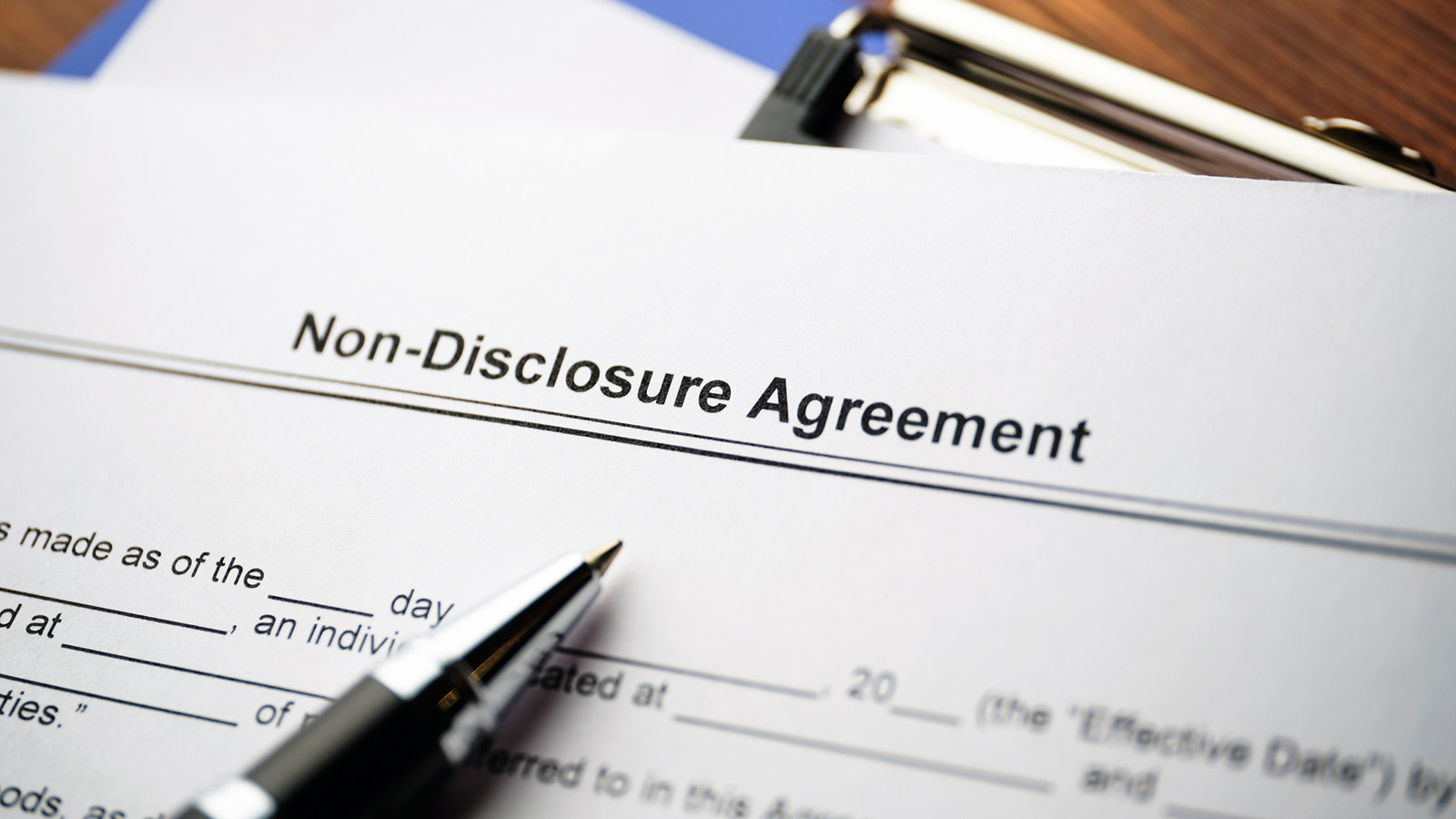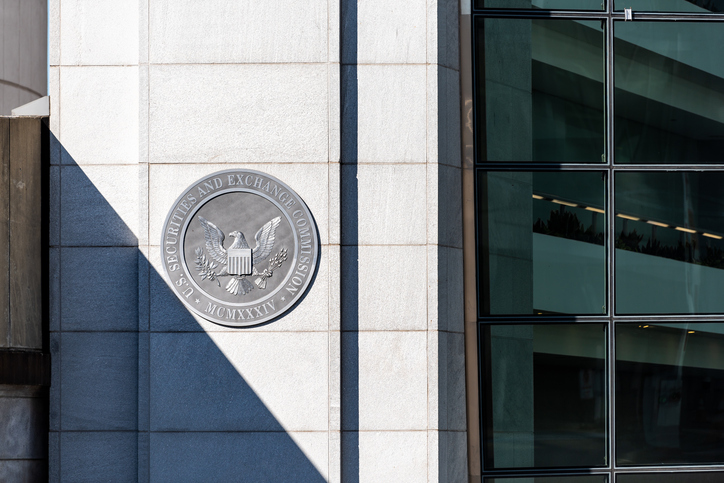SEC Whistleblower Program: A Guide to Reporting Financial Fraud
The Securities and Exchange Commission (SEC) Whistleblower Program incentivizes whistleblower to report federal securities law violations. Whistleblowers are eligible for an award ranging from 10% to 30% of the money collected. Read our guide to learn more about the program and reporting.
February 12, 2026

This information is provided for educational purposes only by Kohn, Kohn & Colapinto and does not constitute legal advice. No attorney-client relationship is created by accessing this content. Laws and regulations may change, and this material may not reflect the most current legal developments. If you believe you have a whistleblower claim, consult a qualified attorney to discuss your specific circumstances.
Given the meteoric rise in securities fraud over the last few decades, the U.S. Congress decided to create the SEC Whistleblower Program. This program is designed to provide incentives, namely awards and protection, to those who report potential violations of securities laws to the SEC.
In return for their specific, timely, and credible “high quality” original information, they may be eligible to receive an award between 10% and 30% of the monetary sanctions collected in a successful enforcement action or related actions, brought by the SEC, or by other regulatory and law enforcement agencies.
Furthermore, this program prohibits employers from retaliating against a whistleblower for engaging in a protected activity, such as providing the SEC with information about a possible securities violation. Under Exchange Act Rule 21F-17, employers (or fraudsters) are prohibited from stopping a whistleblower from contacting the SEC directly.
According to the SEC’s annual report published in November 15, 2024, the SEC has awarded more than $2.2 billion to 444 individual whistleblowers since the Program’s inception in 2011. Payments are made out of an investor protection fund established by Congress that is financed entirely through monetary sanctions paid to the SEC by securities law violators. No money has been taken or withheld from harmed investors to pay whistleblower awards.
Continue reading our guide to learn more about the SEC Whistleblower Program to determine if you’re eligible for an award.
Our firm welcomes former SEC acting chair and commissioner Allison Herren Lee
Now Of Counsel at Kohn, Kohn & Colapinto, Allison Herren Lee is ready to serve and protect whistleblowers, and help them seek rewards under the Dodd-Frank Act and SEC Whistleblower Program. If you’re an SEC whistleblower seeking to report a concern, contact our law firm today to speak confidentially with Allison Lee.
What is an SEC Whistleblower?
“I want to note our appreciation to whistleblowers who, sometimes at great risk to their livelihood, report suspected securities laws violations to the SEC. Our whistleblower program has been a success because of their efforts. Working together, we have stopped frauds and prevented losses for countless investors”
“The SEC Whistleblower Program…has rapidly become a tremendously effective force-multiplier, generating high quality tips, and in some cases virtual blueprints laying out an entire enterprise, directing us to the heart of the alleged fraud.”
A whistleblower is a person (or persons) who disclose fraud, wrongdoing, abuse, or illegal or unethical practices to authorities to invoke transparency, fairness, and justice.
An SEC whistleblower is someone who voluntarily provides the SEC with original information about a possible violation of federal securities laws. This information must reflect a violation that is occurring or about to occur. It’s possible for one or more people to become a whistleblower, but corporations, organizations, and private companies cannot.
The SEC is responsible for enforcing the Foreign Corrupt Practices Act (FCPA), and under such law, foreign nationals can also become an SEC whistleblower if their information includes bribery of, or improper payments to, foreign officials, among other violations.
Note on “Original Information”
“Original information” is independent knowledge or analysis that’s not already known by the SEC. It excludes publicly available information, attorney-client privileged communications, and information learned through your role as an officer or director.
Note on “Voluntary”
“Voluntary Information” is information you provide to the SEC or other authorities before they officially ask for it.
Types of Violations the SEC Investigates
There are many types of fraud or misconduct the SEC might investigate for potential violations of securities laws. They are more inclined to investigate a tip if the information is specific, credible, and filed in a timely manner. Below are a few examples of the misconduct the SEC is likely to be interested in:
- Ponzi schemes
- Pyramid schemes
- High-Yield Investment Programs (HYIPS)
- Accounting Fraud
- Market Manipulation
- Insider trading
- Initial Coin Offerings (ICO)
- Cryptocurrency
- Abusive naked short selling
- Bribery
- Money Laundering
- Front Running
- Theft or misuse of funds or securities
- Fraudulent or unregistered securities offering
- False or misleading statements about a company
- False or misleading SEC reports or financial statements
Again, keep in mind that the strong your tip is, the more likely it will be picked up by the SEC. A strong tip might include the names of certain people involved, contain information about specific transactions, or be an email exchange between two parties.
Reporting Internally
Reporting internally at your company is not required for an award. And there is good reason why. And that’s because there is a long history of insiders reporting their disclosures internally, only to be retaliated against. Thus, we strong advise against using internal hotlines or compliance programs. These programs are designed to protect the company against scandals and investigations from such authorities as the Securities and Exchange Commission.
Even if you choose to report internally, you must also report the information directly to the SEC within 120 days to ensure your internal reporting is considered “reported to the SEC” to become eligible for an award. Also keep in mind that your participation in the internal compliance program may be used to consider award amounts.
How Do I Submit a Tip Under the SEC Whistleblower Program?
Whistleblowers may become eligible for an award only after submitting a tip to the SEC through the online Tips, Complaints and Referrals (“TCR”) portal. Whistleblowers may also submit a physical TCR using the contact information on the SEC’s Submit a Tip page.
Submitting a tip can be done without an attorney. However, this is discouraged for a number of reasons; here’s why:
- Anonymity: An attorney can help you submit your tip anonymously, protecting your identity from potential retaliation.
- Legal Guidance: A qualified attorney can provide expert advice on the legal aspects of your case, ensuring that your tip is submitted effectively and in compliance with all relevant regulations.
- Negotiation: If your tip leads to a successful enforcement action, an attorney can help you negotiate a fair and just award.
- Protection: An attorney can help protect your rights and interests throughout the whistleblower process.
After submitting a tip, whistleblowers can continue to follow up, submit additional information, and keep track of their case using a TCR submission number.
If you’re considering submitting a tip to the SEC, it’s strongly advised to consult with an attorney who specializes in whistleblower law.
Note on “Leads To”
Information “leads to” a successful enforcement action if the SEC opens a new investigation, re-opens an old one, or pursues a tip in connection with the information you provide.
Can I Submit an Anonymous Tip to the SEC?
Yes, you can submit an anonymous tip to the SEC under the SEC Whistleblower Program. However, to do this, you must have a U.S.-based attorney present, as previously mentioned. Instead of you submitting a TCR, an attorney will do so on your behalf, shielding your identity from becoming public.
An SEC whistleblower’s identity is also protected against FOIA requests. However, in some instances, such as in administrative court proceedings, the identity of a whistleblower may be revealed, or during the investigation process. There are some other occasions when information is also shared with outside agencies (see Rule 21F-7).
What if I’m Facing Retaliation?
It is illegal for an employer to discharge, demote, suspend, harass, or discriminate against a whistleblower for reporting potential securities laws violations under the SEC Whistleblower Program, or for assisting the SEC in an investigation.
Employers who retaliate against a whistleblower may be subject to enforcement action by the SEC. Whistleblowers should also note that they may be able to file a complaint with the U.S. Department of Labor under the Sarbanes-Oxley Act if they experience retaliation.
What Happens Once My Tip is Received?
Once a tip has been received by the SEC, it is reviewed by the Enforcement Division to determine whether it qualifies for further investigation. Given the vast number of tips received by the SEC, not every case will lead to an investigation, unfortunately. This is why it’s important to provide high-quality information that makes the tip worth pursuing.
Award Orders: Notice of Covered Action (“NoCA”)
If your information led to a successful sanction of $1 million or more, you may be eligible to receive an award. You will be able to check this by visiting the Notices of Covered Action (“NoCA”), which is a list of covered actions that exceed $1 million in monetary sanctions.
This doesn’t mean that the SEC is not making any determinations that (a) a whistleblower tip, complaint or referral led to the SEC opening an investigation or filing an action with respect to the case or (ii) an award to a whistleblower will be paid in connection with the case.
Whistleblowers have 90 days to apply for an award. Attorneys representing SEC whistleblowers will be notified of such covered actions in connection with the tip.
Applying for an SEC Whistleblower Award
As previously stated, whistleblowers must apply for an award no more than 90 days from when the Notice of Covered Action was posted.
To do this, whistleblowers must complete form WB-APP, and return this form to the Office of the Whistleblower by emailing it to or by faxing it to (703) 813-9322, or by mail to the address listed on OWB’s website.
A whistleblower’s claim must be accurate and relevant. Meaning, it must match the enforcement actions. Tips that are false or unsubstantiated will result in the permanent ban from the SEC Whistleblower Program, and failure to properly fill out an WB-APP may result in award denial.
Some other considerations:
- Officer/Director Exclusion: Explain why you’re eligible for an award if you hold such a position.
- Reporting Delay: If you reported late, explain the reason(s).
- Culpable whistleblowers: Describe your involvement in the misconduct and any financial benefits you received. Incomplete explanations may delay processing.
It’s also important to note that you shouldn’t expect status updates while your claim is being processed. Award evaluation might be delayed if appeals are ongoing. You’ll receive notification about the preliminary award determination after claim review.
Factors in Determining Award Amounts
Awards of $5 million or less generally land a whistleblower 30% so long as no negative factors were at play. Any award amount over $5 million will require further consideration. Award percentages are determined by many factors – some positive and some negative. Below are some of those factors:
The SEC will increase award percentages based on:
- Law enforcement interest in deterring violations of the securities laws;
- The significance of the information you provided;
- The extent of the assistance you provide the SEC;
- The extent to which, you participated in the company’s internal compliance systems.
They may reduce the amount of an award based on these factors:
- If participated in, or culpable for the securities law violation(s) you reported;
- If you unreasonably delayed reporting the violation(s) to us;
- If you interfered with your company’s internal compliance and reporting systems.
Note on Appeals
If your award application is denied, you can appeal it within 60 days. But you are not able to appeal an award decision if the Commission has already granted you an award between 10% and 30% — award percentages are non-negotiable once an award has been given.
Contacting an SEC Whistleblower Attorney
To increase their award amounts, whistleblowers who have information regarding one of violations listed above should get in touch with an SEC whistleblower attorney immediately.
Our firm is comprised of former SEC acting chair and commissioner Allison Herren Lee, and former SEC Enforcement Attorney Andrew Feller, along withOur firm includes former SEC Acting Chair and Commissioner Allison Herren Lee, former SEC Enforcement Attorney Andrew Feller, and Stephen M. Kohn, who has been recognized for his expertise in whistleblower law and has represented clients in numerous SEC cases for over 35 years..
Our attorneys have written many of the rules that protect and award whistleblowers, and have fought to ensure these laws serve you to the fullest extent possible. There is no better firm for your challenging case than Kohn, Kohn and Colapinto. Get in touch today for a confidential case review – we’re here for!
Frequently Asked Questions
Our Firm’s Cases

$125 Million in Awards
We have successfully represented a number of SEC whistleblowers, preserving their anonymity and securing sizable whistleblower rewards. In one case, we helped our client receive one of the ten largest whistleblower awards ever granted by the SEC.






